The Popes and Religious Candidates
My Cousin Cardinal Cristóbal López Romero
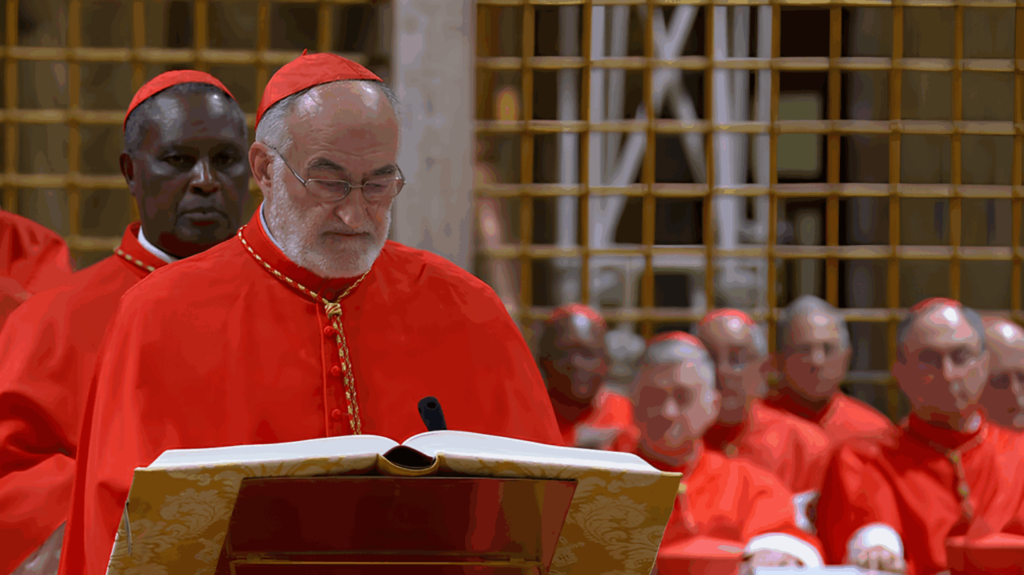
This document moves between testimony and interview. Exaudi and I agreed on some questions for an interview. I passed them on to Cristóbal, but since they were too personal and difficult, they were difficult for Cristóbal to handle, as we say around here. He doesn’t like people talking about him at all. On the cousins’ WhatsApp, everyone who wants to publishes poetry and their own writings, except for him, who is always sending humorous and funny things, never a piece of his own.
I think this writing, in addition to the proximity to a likable cardinal, places us in the proximity of fraternity, community, something that Cristóbal shares with other religious cardinals, and with Francis and León. The contribution of religious life to the papacy is evident and is a sign for our times. Let us hope that the synodality practiced by religious men and women will extend to the entire Church.
May this document serve to bring us closer, from a place of normalcy, to the fraternal life that my cousin the cardinal lives and preaches.
Let’s start with the possibility of being pope. When, given Francis’s fragile health, I told him to pack his bags. He replied that I also had a chance. In the face of such nonsense, I replied that yes, I had the same chances as him. I didn’t come up with the thing about my grandmother when asked about the possibility of him being elected. She argued that he had a better chance than her, that she was a woman, not a priest, and deceased.
For his family, and for those who knew him in the places where Cardinal Cristóbal López Romero, SDB, has resided, the conclave was lived with extreme emotion. This was aided by his statements, generating headlines like the one about his flight to Sicily if he were elected pope, and above all, his gift for communicating, which he inherited from his mother and perfected while studying journalism at a Catalan university. From his father, he inherited his ability to listen. He was a man who rarely spoke, but when he did, his words were accurate and conclusive.
For most of his fans, it was like losing the Champions League. For a minority, it was a relief to see, as he himself said, that the superhuman burden had not fallen on his shoulders. I personally went from hysteria to serenity when Pope Leo XIV appeared on the balcony, about whom we wrote one of the very first articles in Exaudi, thanks to the information Cristóbal gave us about that first dinner with the new pope.
We will always wonder whether his lavish statements before the conclave were enough to avoid the election. It is said that those who enter the Sistine Chapel as pope emerge as cardinals. I am inclined to believe that he truly had the peace of mind that he would not emerge. Let us believe his words.
He himself praises, as could not be otherwise, Pope Leo, with whom he had the good fortune to share, as we have said, not the last, but the first dinner. Cristóbal knows how to recognize virtues in others. He always makes you feel good, and he’s particularly lavish with praise for the Pope.
Every pope leaves his mark; they’re different within a continuum, he said in recent statements.
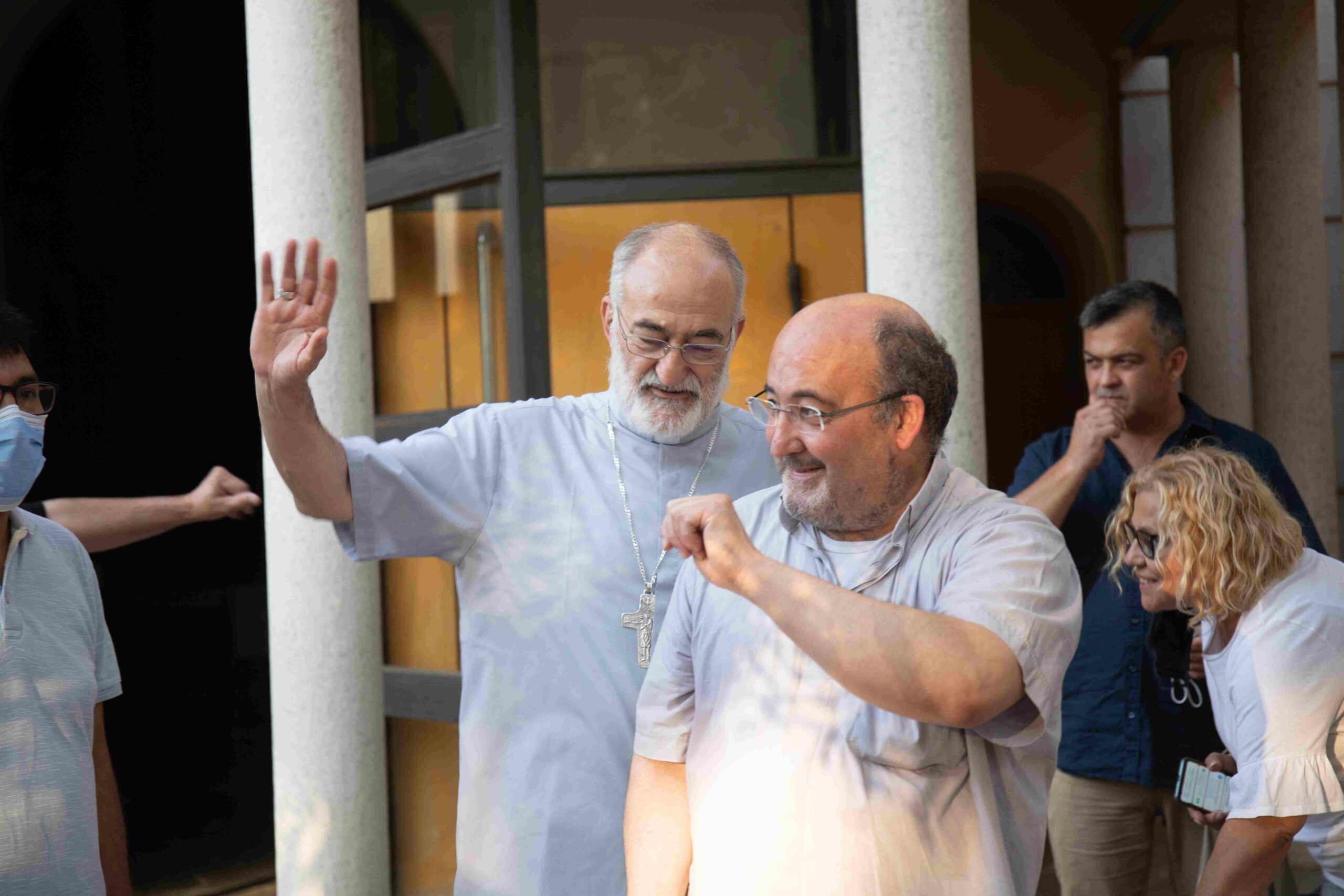
Cristóbal shares with the current pope and with Pope Francis the fact that he belongs to religious congregations: Augustinians, Jesuits, Salesians. In Pope Leo’s case, the pectoral cross with relics of the order’s saints and his visit to the Augustinian curia are indicative of his connection to the religious family. Cristóbal felt the same. Salesian devotions reached the whole family. We knew “Mama Margarita” through my aunt Reyes. We were surprised that he treated Don Bosco’s mother with such familiarity. And of course, Mary Help of Christians, who came to supersede the devotion to the Immaculate Conception of Vélez Rubio (Almería), the town where we were born, from which we both emigrated with our parents who brought us. Incidentally, the image of the Immaculate Conception, from the Salcillo school, awakens such devotion in the surrounding families that, currently, there are five of us priests born within a 300-meter radius of the convent that houses it.
Synodality, the fruit of the last synod, cannot be understood without religious life. Walking together, working together, and including others in the project are best understood within religious congregations. Pope Leo insists on fraternity, which is essentially the sister of synodality.
For me, Christopher was always a role model and a challenge, to be imitated from afar. When I felt a calling to religious life, the human pride of not being able to match Christopher’s excellence made me discard the idea of joining the Salesians. But he has always been a role model. From him, I learned that natural brotherhood with the least of society.
The gesture of the poor at Pope Francis’s funeral was almost insignificant compared to the number of children, young people, and adults from the slum where Cristóbal worked who attended his ordination.
He doesn’t want anyone to change the way he treats him, since his personality hasn’t changed.
On the day of his investiture as a cardinal, the day he was given the cap, we gathered before the ceremony on one side of St. Peter’s Square in the Vatican. He was already wearing the new shoes his sister Rosa had brought him from Sabadell. He had been told that his old ones wouldn’t be suitable for the ceremony. He climbed a sort of staircase and began calling out the names on the list to give us tickets to the basilica and subsequent events. One of the relatives tried to take away his job as the ticket-handling spokesperson, to which Cristóbal replied that nature had given him a powerful microphone and he didn’t need helpers.
I remember him as a child, when during school breaks from the minor and major seminaries he would visit the family, solemnly blessing the table while everyone prayed in an attitude of recollection.
Although he never lost his spirituality, he soon became involved in pastoral care in the peripheries. Going to teach elementary school in a marginal public school, instead of continuing in the Salesian congregation’s own schools, he began an itinerant lifestyle of T-shirts, sandals, ponchos, sandwiches, meetings, long trips…
You could say I almost knew him when he was a Salesian, or a priest teacher, as his mother Reyes, my mother Trini’s sister, would say. Perhaps we saw each other more when he came on vacation to the town where we were born, Vélez Rubio (Almería). His family emigrated to Badalona when he was nine months old. They came almost every year. One of the few memories I have is of his discovery, as a child, of the city of goat olives.
Cristobal was always exemplary. He has a memory that surpasses computers. It’s the family album of families with several surnames. After the conclave ended, the patriarch of the Romero cousins started chatting on the cousins’ WhatsApp, welcoming a new cousin who lives in Costa Rica and is related through my father’s branch, from Lo Gea. But he was looking for similarities, telling jokes, like someone who comes from anywhere but a conclave. We’ll always wonder if he did it so we wouldn’t ask him or because it’s his style.
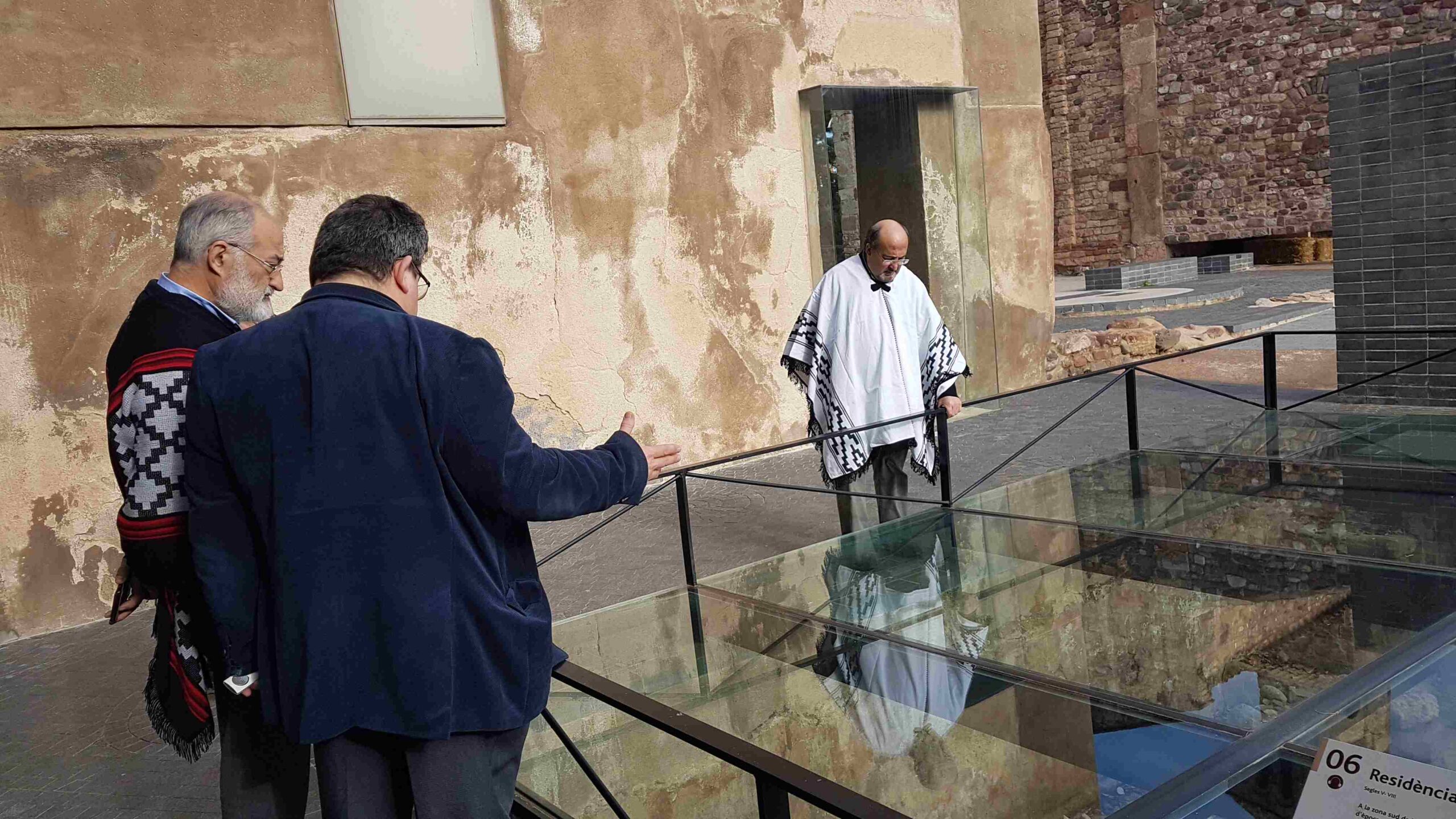
I remember that before becoming bishop, I asked him about his retirement. Where he planned to retire after traveling so much around the world. Without him knowing that in a few years he would be bishop of Rabat, he told me he would like to return to Morocco. He had volunteered for the Salesian community in Kenitra. He always sees and imagines projects, where others see difficulties. Now, in his statements, he also talks about plans for when he retires. Of course, within the Salesian congregation.
The Church has been on the front page for several days around the world. Cristóbal, who resigned as bishop in Paraguay, says he won’t resign. He did write a letter. He did confess to me that they wanted to make him a bishop, but that he thought it better for a native. Although he is proud of his Paraguayan nationality. He was a spokesperson for the Episcopal Conference. He places great importance on the media. For a time, he also directed the Salesian publishing house. He is a vocational journalist. And in this sense, he told me that the Church reported late and poorly. With the papacy of Francis, we have had a change in transparency. The ease with which Cristóbal granted interviews is driven by that philosophy of reporting clearly and avoiding misunderstandings. Even so, a journalist took him at face value about his escape to Sicily.
He is neither afraid nor ashamed to address nonbelievers, much less shy about the difficulties or rejection of religion. He stated these days: “There is something within every person. There are six thousand journalists accredited to participate in the meeting with the Pope. There is something that touches the world. Despite the sorrows, the problems and errors of the Church, the difficulty we have in understanding one another. There is a reason Jesus told Peter that the Church will prevail throughout the centuries. The powers of evil will not prevail over her. The Church has been moving forward for twenty centuries.”
His vision of the Church is always more than optimistic, joyful. As he said these days, he’s no prophet, but he doesn’t understand the fear of the future. He recently stated: “The Church must open itself to the world; it can’t live in a bubble, suffocating from lack of oxygen. Pope Francis said he preferred a Church that’s damaged by scrapes and collisions, rather than a Church that’s sick from a broken heart. God has opened itself to the world. It’s necessary to get close to the people, to take risks.”
He’s poor for no reason. His current office in Rabat lacks luxury, and the simplicity of his clothing follows that of a young man from the 1980s, anti-fashion, with an almost obsessive preference for ponchos and T-shirts. His ring and pectoral cross betray his preference for the poor. Where he exceeds the average is in the kilometers he travels, using all modes of transportation, preferably the plane, although he still has a dental scar from the accident he had as a young man while on a mission.
He keeps photographs of his family in his office. It was almost the first thing he wrote. He left home as a teenager, but he is the cousin who maintains the connection with each of us and among us. Before becoming a bishop or a cardinal, he was the glue that held the family together.
His physical and spiritual strength is enviable. What could his secret be? His parents, especially those on the López side, lived long lives, but if bad tempers and problems get the better of them, Cristóbal has the formula: laugh and make people laugh. The people who attend his lectures remember his jokes. He says it’s crucial to change the jokes before repeat audiences. Asked by a journalist about the subject of jokes, which he had the privilege of explaining to Pope Leo at that first dinner, he replied: Charles Chaplin said that a day without laughter was a day lost. In Rabat, we are few and far between, and we live our faith with joy and enthusiasm. In Europe, they are experiencing “religious depression.” There are diagnoses in Europe that faith is waning… Let them come to Morocco and see. We are few, but happy.
We stayed with that invitation. In my parish, we organized a trip just as the pandemic began. It had to be canceled. He has already promised to visit the parish of St. Vicenç de Jonqueres.
I end by asking his forgiveness for this writing. He is against being spoken of as a character. He is a protagonist who makes others protagonists. You don’t know how, but in the meetings he manages to get us cousins to listen and talk. But today we upset him. When something is good, it should be shared.
I showed him this writing before publishing it, and between surprise and embarrassment, he was encouraged to answer the questions I had asked him. I think the family and the church in general will appreciate it. He tells me in the dispatch note: Alfonso, this is more of a psychoanalysis session than an interview! We almost wrote a book.

How have you felt the presence of those who are no longer with us during this Conclave?
I assume you’re referring to my parents, uncles, and relatives who preceded us and who, by the way, have left you and me on the front lines to face that necessary and final step on this earth, which is death.
You know as well as I do how joyfully and with healthy pride our mothers followed and spread our adventures. That’s why I couldn’t help but wonder more than once how my mother would have experienced this event of the Conclave with her child inside her. My father, as you know, was very discreet and measured in his expression of his feelings. But I was surprised when, the day I told him I had been appointed bishop, I thought he wouldn’t be happy because it meant leaving Spain, and our relatively frequent meetings, to move to Morocco. However, very spontaneously, he hugged me and kissed me, something unusual for him.
How did you experience the spiritual and human atmosphere within the Conclave?
The days leading up to it and the Conclave itself were like open spiritual exercises: learning about the universal Church through conversations with the various cardinals; impressive liturgical celebrations, such as Pope Francis’s funeral, but also the days of mourning and the “Pro eligendo pontifice” Mass; my visit to “my parish” in Rome, which, curiously, is St. Leo I the Great; long sessions listening to the interventions in the hall; intense moments of personal prayer already in the Conclave while the votes were being voted on and counted; a beautiful fraternity and a search for the good of the Church and the world on the part of everyone… and an intense catechesis through the media that struck me from the very beginning. These are the elements I would highlight from my personal experience.
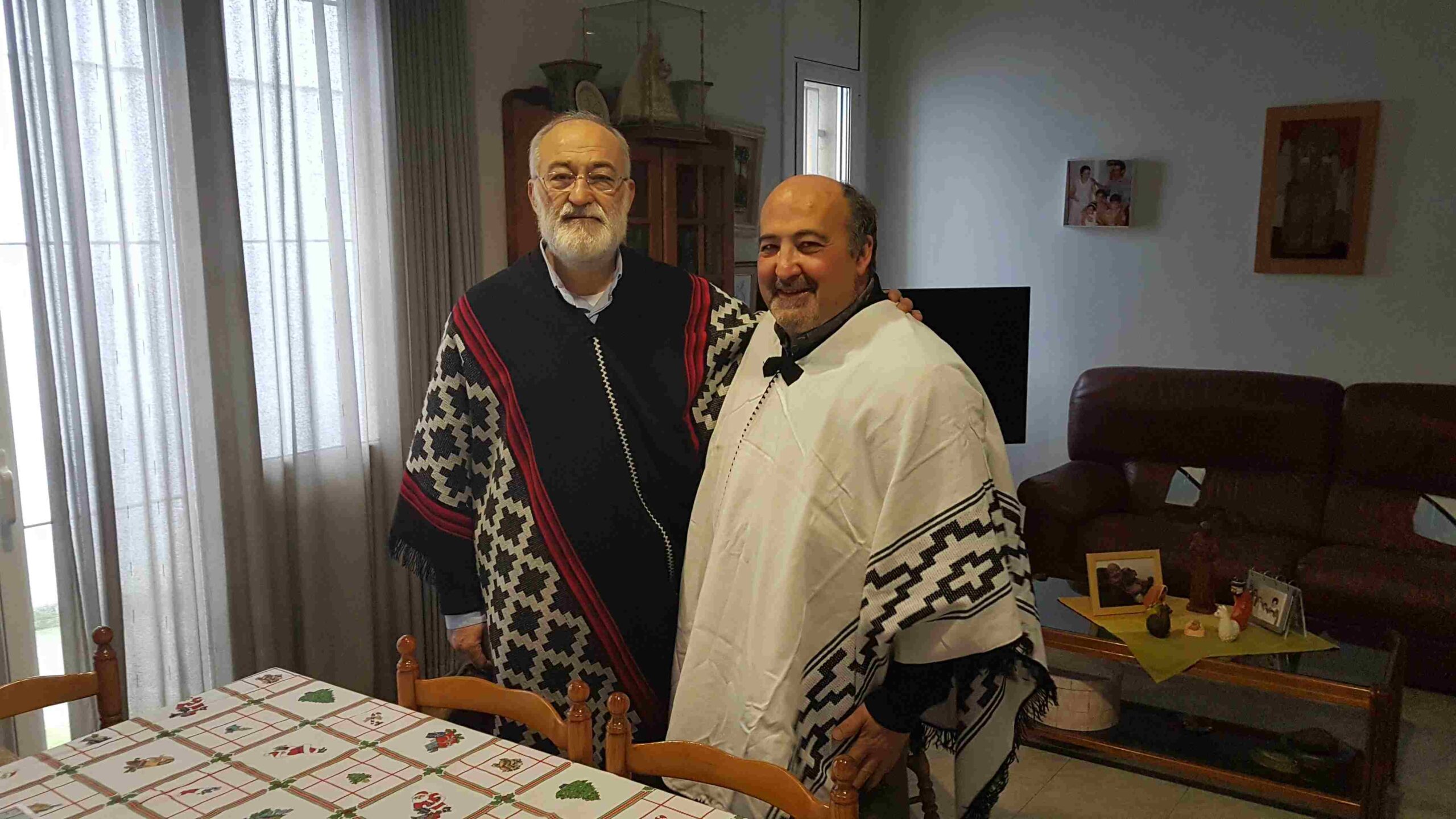
What surprised you most about this experience compared to your initial expectations?
The speed and ease with which the election was reached, knowing that we are so diverse in origin (apparently from 73 countries), in formation, and in personal journey. All of this can only be explained by the detachment each cardinal elector made from their personal or group interests, to seek only and solely the good of the Church and the world. And this is a fruit of the Holy Spirit.
When it is said that it is the Holy Spirit who chooses, this should not be understood as if said Spirit came to the electors in the form of a vision, inspiration, or revelation to tell us who to vote for. The Spirit works from within each person, silently and discreetly… but it is effective. I, at least, cannot explain the result without its action. Humanly speaking, it is not possible to reach consensus beyond two-thirds without attitudes of openness and detachment on the part of all the cardinals; and that is thanks to the Spirit.
How do you interpret the Church’s media success in contrast to the low level of support in some countries?
We must recognize that Pope Francis has set the bar for media interest in the Church very high. It must also be acknowledged that the election of a Pope comes, in this case, after 12 years and is carried out by a system unique in the world. The discrediting of political leaders around the world also contributes, leaving the figure of the Pope as the sole moral reference point worldwide. To all this, we must add the extraordinary development of new communication technologies, which have made information available to everyone, instantly and almost free of charge, thus facilitating the live broadcast of everything that happens. I have cited four factors that explain the media success of this ecclesial event.
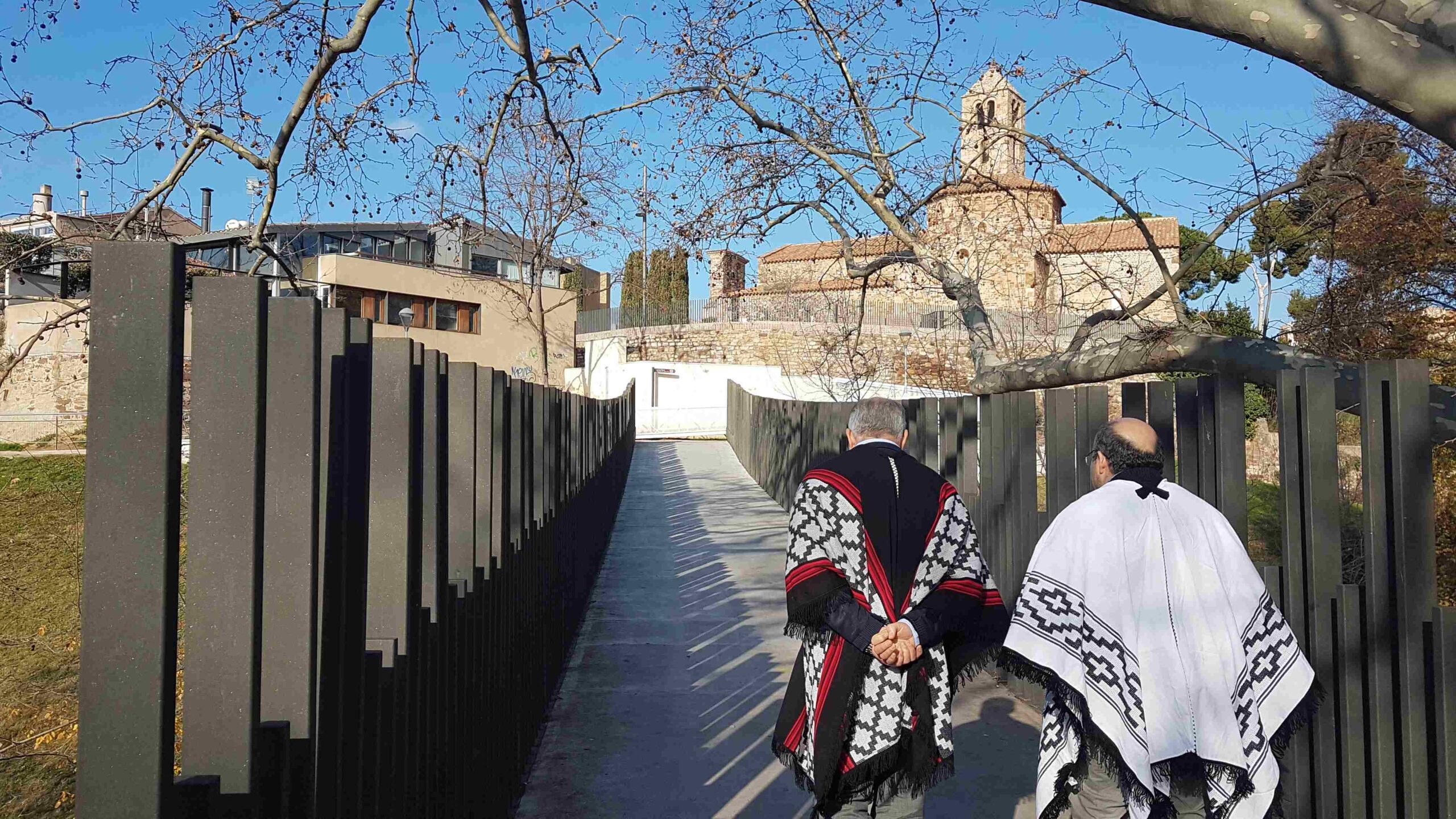
How do you imagine and dream of the Church of the future?
A Church conscious of being a servant of the Kingdom of God. As Mary declares herself the servant of the Lord, so too must the Church consider herself a servant of the Lord and his Kingdom. The Church does not have to be self-referential; its reference, its focus, is outside itself: in the Kingdom. And working for the Kingdom means and is realized in working for peace, justice, freedom, life, truth, and love. “Seek first the Kingdom of God…”
A Church that, not being of the world, is in the world. A Church that follows the example of God, who, to save the world, became human: “And the Word became flesh and dwelt among us.” A Church, therefore, incarnated in different contexts, times, cultures, and civilizations.
A Church-communion, which is an example and sacrament of fraternity. “By this all will know that you are my disciples, if you have love for one another.” A great and immense family-community made up of millions of small fraternal communities.
A missionary Church, outgoing, in dialogue; A Church that, strong in its identity, has the courage to open itself to the other (otherness) with the sincere intention of sharing and bearing witness to its faith, listening to and being enriched by the religious experience of others.
A Samaritan Church that, following the example of the Good Samaritan, bends down to welcome and heal the wounded, without asking who they are or why they are in that state. “Whatever you did to one of these little ones, you did to me.”
What do you think are the main challenges the Church must face in reaching out to the new generations?
- May every Christian authentically live the Gospel and be a consistent witness to Jesus’ message. Less sermons and more example. “Young people do not want teachers, but witnesses; and if they accept a teacher, it is because he bears witness to what he teaches” (Paul VI).
- May we be incarnated in the reality in which we live and be capable of learning the “languages” spoken by digital youth.
- May we love people as God loves us.
- May we grow in unity without stifling diversity, but rather through it.
- May Christ be the center of every Christian’s life, and may our nourishment be Christ the Word and Christ the Eucharist.
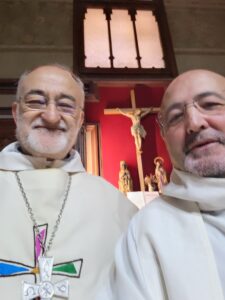 Do you consider technology and digital media to play a crucial role in evangelization today?
Do you consider technology and digital media to play a crucial role in evangelization today?
I don’t know if they are crucial, but they are important and we cannot ignore them. But personal encounters and direct interpersonal relationships are much more crucial and important.
What is the secret of your physical and spiritual strength to carry out your mission?
I don’t think I have much strength; I wish I had much more. And that happens through:
-
- A deeper spiritual life,
- support in community life and teamwork,
- an unshakeable conviction that it is the Lord who calls me and sends me to work in his Kingdom, and who accompanies and sustains me
How does your family influence your vocation and your spiritual journey?
“My home is the world, and my family is humanity.” I feel at home always and everywhere, but especially when I am with my family of origin and also in the Salesian family, which has been my natural environment since I was eight years old.
It is in the Salesian family that I have grown and matured in faith, to the point that I can say that, for me, Christian life and Salesian life are two sides of the same coin. I can’t conceive of one without the other.
What role have your parents and loved ones played in your faith formation?
My parents always had a faith that wasn’t manifested in much religious practice. Emigration and the extremely intense workload of hours and effort meant that the life of faith was put on hold. But the most important thing is that, thanks to them and other family members, I grew up in an environment of strong Christian values: love, fidelity, hard work, responsibility, mutual support, honesty…
How do you maintain the balance between your pastoral life and your personal life?
Quite poorly. I think that if I were able to take a little more care of my personal life on all levels (physical, intellectual, emotional, spiritual), my pastoral work would benefit greatly.
How do you see your retirement? Would you like to dedicate yourself to a specific mission at that time?
“Let yourself go,” I read in the advertisement for an airline that was taking me to my new mission in Bolivia in 2011… And I liked the motto, because that’s what I’ve done throughout my life, and it’s worked out well for me: letting myself be carried away by what the Lord has asked of me through the Congregation, the circumstances of life, and the Church.
So, as soon as the Pope accepts my resignation (I’d like it to be on my 75th birthday, two years from now), I will make myself available to the Superior of the Salesian Congregation, in case I can be useful somewhere; it could be in Paraguay, Bolivia, Morocco, Spain… or Sicily! Ha ha ha.
I would like to be able to put many of the experiences I’ve had in life into writing. Perhaps it could be of use to others.
What legacy would you like to leave for future generations within the Church?
The testimony of a full and happy life, dedicated to others in following Christ and working for his Kingdom.
If you had the opportunity to change something in the Church today, what would it be?
- The clericalism that prevents or hinders lay people from being responsible protagonists in the Church and in serving the Kingdom.
- The lack of transparency in financial matters.
- The abuses of all kinds.
- The disunity and lack of communion.
- The bourgeoisification, the indifference, and the lack of commitment to the poorest and most needy.
Related

Vertical Families: The Challenge of the Sandwich Generation
Laetare
16 May, 2025
3 min
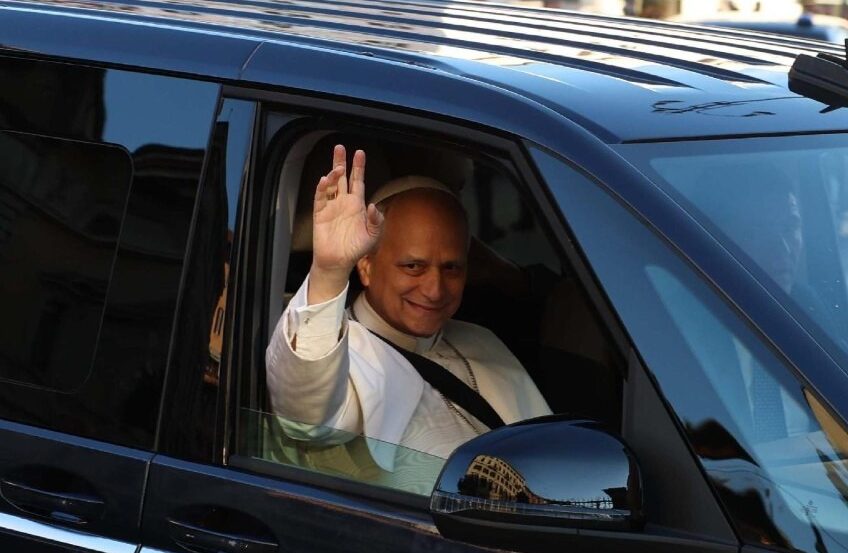
Cardinal Felipe Arizmendi: Leo XIV: Jesus Christ, Church, World
Felipe Arizmendi
14 May, 2025
5 min

Safety of Stem Cell Therapy for Parkinson’s
Jaime Millás
14 May, 2025
4 min

Pope Leo XIV’s First Regina Caeli: A Message of Hope and Peace
Irene Vargas
11 May, 2025
5 min
 (EN)
(EN)
 (ES)
(ES)
 (IT)
(IT)

